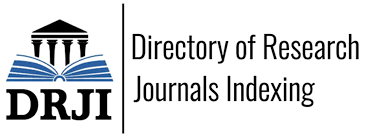Ismail Raji al-Faruqi's thought on Islamization of knowledge and its significance for Islamic education
DOI:
https://doi.org/10.18326/ijoresh.v2i2.180-209Keywords:
Islamization of knowledge, Ismail al-Faruqi, Educational thoughtAbstract
This paper explores al-Faruqi's thoughts on the Islamization of knowledge and evaluates the significance of his ideas in the Islamic educational context. The study employs a comprehensive review of al-Faruqi's writings and contributions to the discourse on the related concept. To establish a comprehensive understanding, the discussion begins with the history of how the ideas on the Islamization of knowledge emerged. Subsequently, it explains al-Faruqi’s concept of Islamization of knowledge, suggesting that all disciplines comprising the humanities, the social, and the natural sciences must be Islamic-based and consistent with Islamic objectives. Furthermore, this paper delves into solving the education problem and the principles of the Islamization of knowledge by discussing the work plans employed. His most remarkable work plan is creating a university textbook tailored to the discipline, incorporating new insight on the meaning of Islam and innovative approaches to realizing that meaning. Fundamentally, the research highlights how al-Faruqi has greatly influenced the development of Islamic education by integrating Islamic principles into knowledge
Downloads
Published
How to Cite
Issue
Section
License
Copyright (c) 2023 IJoReSH: Indonesian Journal of Religion, Spirituality, and Humanity

This work is licensed under a Creative Commons Attribution-ShareAlike 4.0 International License.
Copyright
Authors who publish with Indonesian Journal of Religion, Spirituality, and Humanity agree to the following terms:
- Authors retain copyright and grant the journal right of first publication with the work simultaneously licensed under a Creative Commons Attribution License (CC BY-SA 4.0)that allows others to share the work with an acknowledgement of the work's authorship and initial publication in this journal.
- Authors have the right to enter into separate, additional contractual arrangements for the non-exclusive distribution of the journal's published version of the work (e.g., post it to an institutional repository or publish it in a book), with an acknowledgment of its initial publication in this journal.
- Authors are permitted and encouraged to post their work online (e.g., in institutional repositories or on their website) prior to and during the submission process, as it can lead to productive exchanges, as well as earlier and greater citation of published work.
Licensing
This work is licensed under a Creative Commons Attribution-ShareAlike 4.0 International License.








